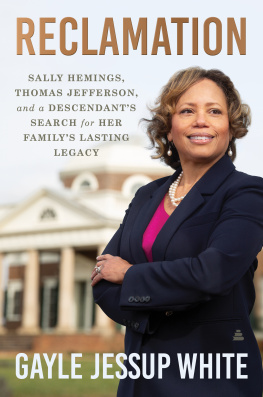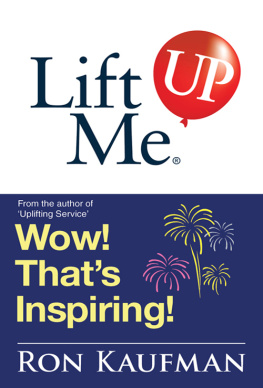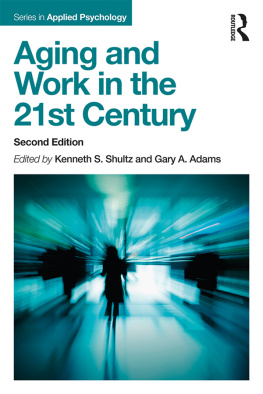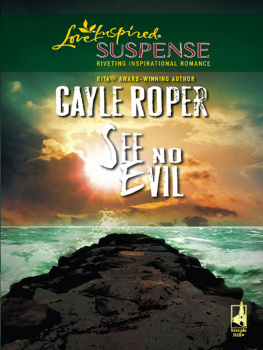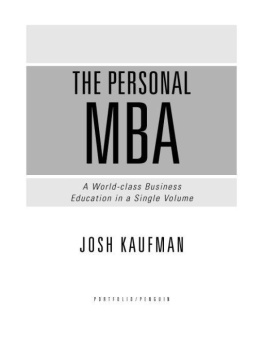Thank you for buying this ebook, published by NYU Press.
Sign up for our e-newsletters to receive information about forthcoming books, special discounts, and more!
Sign Up!
About NYU Press
A publisher of original scholarship since its founding in 1916, New York University Press Produces more than 100 new books each year, with a backlist of 3,000 titles in print. Working across the humanities and social sciences, NYU Press has award-winning lists in sociology, law, cultural and American studies, religion, American history, anthropology, politics, criminology, media and communication, literary studies, and psychology.
SUPERDADS
NEW YORK UNIVERSITY PRESS
New York and London
www.nyupress.org
2013 by New York University
All rights reserved
References to Internet websites (URLs) were accurate at the time of writing. Neither the author nor New York University Press is responsible for URLs that may have expired or changed since the manuscript was prepared.
Library of Congress Cataloging-in-Publication Data
Kaufman, Gayle.
Superdads : how fathers balance work and family in the 21st century / Gayle Kaufman.
pages cm
Includes bibliographical references and index.
ISBN 978-0-8147-4915-9 (cl : alk. paper) -- ISBN 978-0-8147-4916-6 (pb : alk. paper)
1. Fathers. 2. Fatherhood. 3. Work and family. 4. Work-life balance. I. Title.
HQ756.K375 2013
306.8742--dc23
2012049434
New York University Press books are printed on acid-free paper, and their binding materials are chosen for strength and durability. We strive to use environmentally responsible suppliers and materials to the greatest extent possible in publishing our books.
Manufactured in the United States of America
c 10 9 8 7 6 5 4 3 2 1
p 10 9 8 7 6 5 4 3 2 1
ACKNOWLEDGMENTS
There are so many people I would like to thank for helping me as I wrote this book. First, I must thank all the fathers who shared their stories with me. Many men met with me during their lunch hour, after work, or on their first day off in weeks, and the time they took to speak with me was time away from their families. I am so thankful that these men poured their hearts out to me, sharing personal joys and hardships of parenting and life. Thanks also to Toshiba Conner, Kristen Fortin, Don Grady, Elisa Moreno, Nannie Potts, Vivian Rogers-Cannon, Connie Scher, Aimee Symington, Larry Taylor, Verde Torrence, and several community organizations for help in recruiting fathers. A special thanks to Judith and Jay Schreider for opening their home to me to conduct many of my California interviews.
I am also grateful for grant support from the American Sociological Associations Fund for the Advancement of the Discipline, which is supported by the American Sociological Association and the National Science Foundation. This grant is intended to fund small, groundbreaking research and it certainly helped me get this project started. Other funding from the Economic and Social Research Council (ESRC), the Social Science Research Council (SSRC), several Davidson College Faculty Study and Research grants, and the Centre for Research in the Arts, Social Sciences and Humanities (CRASSH) at the University of Cambridge was instrumental in fostering this research.
This project also benefited from my involvement with other scholars. I owe a great deal to Fran Goldscheider, who introduced me to family sociology and has inspired me for twenty years now, first as my professor and mentor and later as my colleague and friend. Through comparative research with British colleagues Clare Lyonette and Rosemary Crompton I have been better able to see the important tendencies in my American data. Working with Swedish colleagues Eva Bernhardt, Livia Olh, and Anna-Lena Almqvist has also made me want to push harder for change in American policies. I have also had the good fortune of working with my frequent collaborator and friend Hiromi Taniguchi, who pushes me in the research realm and entertains me in the personal realm. Thanks for early comments to Andrea Doucet, Linda Haas, and Margaret OBrien.
At Davidson College, thanks to Mary Muchane and Beverly Winecoff for grant support and thanks to Cheryl Branz for administrative support. I am very thankful for having such a fine departmental colleague in Gerardo Marti, who provided invaluable advice and support through the entire process. Thanks to all my undergraduate research assistants, Georgie Ahrendt, Allie Christ, Katie Hamilton, Justin Hartanov, Ryan Hubbard, Shantay Mobley, Eric Reeves, Paul Sayed, and Damion White, for help with literature searches, data transcription, and coding. A very special thanks to Damian White for reading, thinking, commenting, and talking through every detail of the book. After super July, I will always see you as a trusted colleague.
Ilene Kalish has been a great editor, expressing interest in my book project right away and helping me to think through important issues such as the title. The reviewers provided positive and useful feedback, encouraging me to focus more on superdads. Thanks also to Aiden Amos, who helped with the very practical matters of the book publishing process.
For listening to me work through all sorts of details, I am grateful to my running partner and friend Suzanne Cooper-Guasco. Thanks also to Lynda Stark, Kristie Foley, and Angela Willis. Finally, I am truly thankful for having such a great family. Hugs and kisses to Mary Ann and Victor Jung, Fred and Lori Kaufman, Robert and Frances Bell, Rick and Vee Kaufman, Kai and Suji Jung, Chris and Kindra Bell, John Bell and Hilary Spiegelman, and my adorable nieces and nephewsAleksei, Noah, Hannah, Elliot, and Quinn. I find it difficult to describe the incredible joy of having two amazing kids, Emily and David, who make my world brighter. And never-ending thanks to my husband, Kevin Bell, who is my reader and rock, the one who has supported and nurtured me from beginning to end. As the model for superdads, this book simply would not be possible without you.
ONE
Introduction
More Dads at the Bus Stop
A few days ago I was at the afternoon bus stop. The bus from the elementary school comes anytime between 3:50 and 4:05, dropping off somewhere around 15 children. What I noticed this day was that there were more fathers at the bus stop than mothers. This is not completely unusual for our block, but rather you could see it coming if you paid attention to the ups and downs of the market and the individual job changes within this particular group of fathers. I suppose I should qualify my observation by noting that two of the fathers are professors, one is a pilot who mainly works weekends, and one is recently unemployed. Not to mention my husband, a writer who works from home. But we have had other, more occasional, fathers, ones whose schedules are not quite as flexible but who still make the effort to move things around at work if they need to be at home. The point is that fathers are no longer an anomaly at the bus stop. There are more dads holding hands, tossing balls, and talking with children as they wait for the bus. One local dad plays rock, paper, scissors with his young daughter through the bus window as other children board the morning bus.




